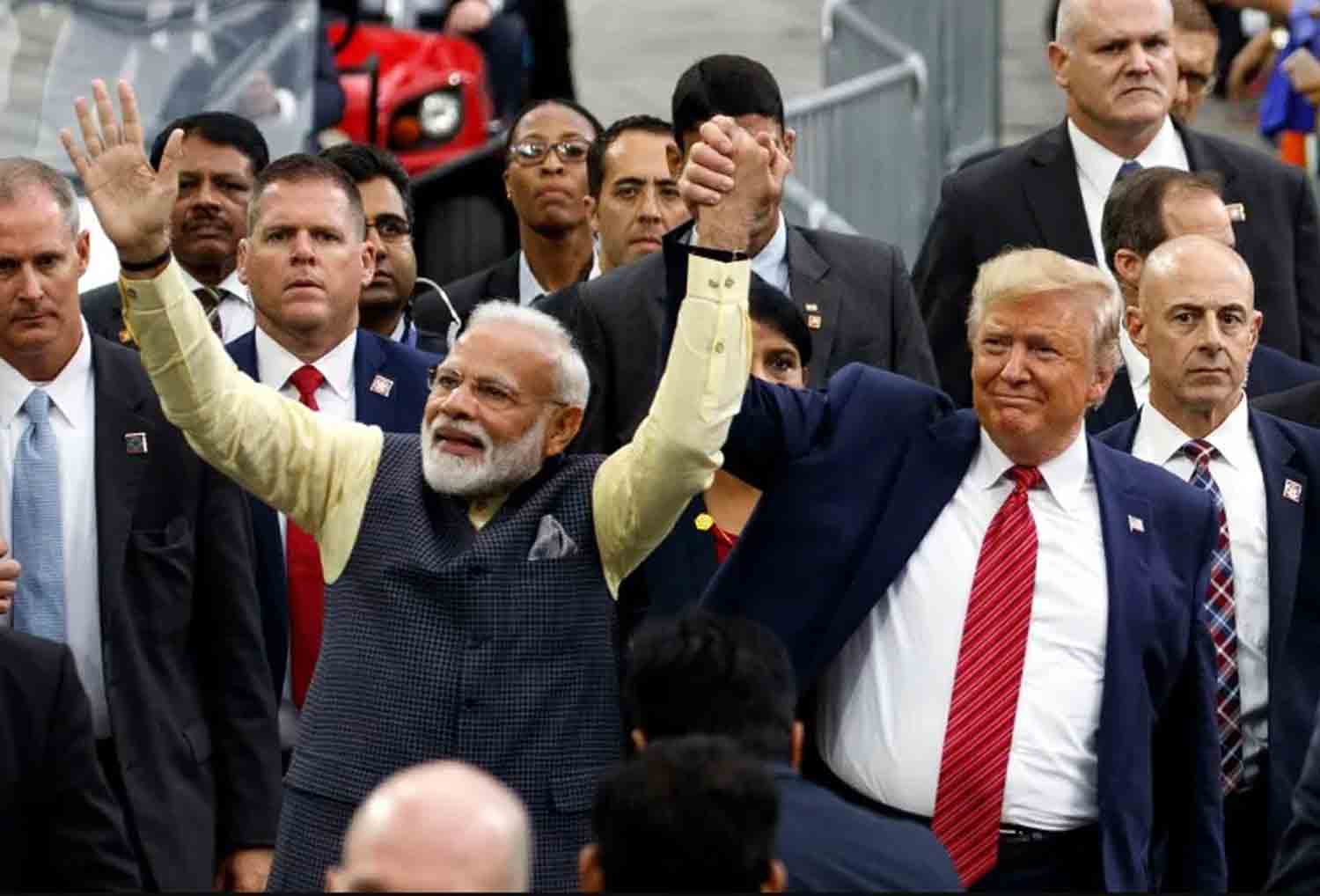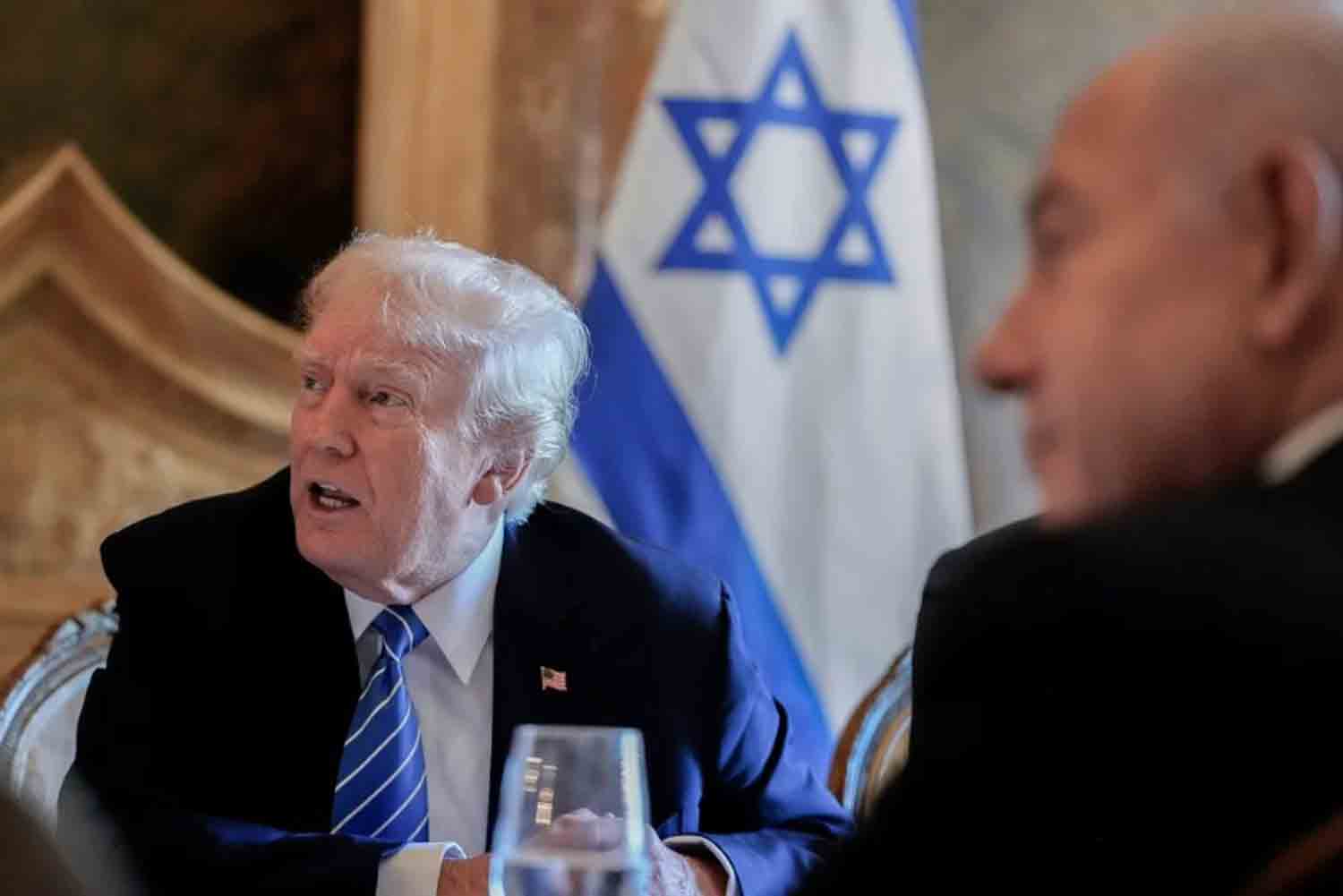During his re-election campaign, Donald Trump consistently threatened to impose significant tariffs on imports from various nations, with a particular focus on China. He proposed a staggering 60 percent tariff on Chinese goods. India also became a prominent target, as he labeled it a “major charger” of tariffs and vowed to reciprocate.
As Trump gears up to assume office once more following a surprising victory over Vice President Kamala Harris in the US presidential election, his intentions regarding trade barriers and his anti-immigrant stance pose potential challenges to the bilateral relationship with India.
The United States is India’s largest export market and consistently ranks among its top two trading partners.
“India-US relations could indeed become strained if Trump follows through on all his election commitments,” remarked Biswajit Dhar, a distinguished professor at the Council for Social Development in New Delhi. “If he implements these plans, it would spell very troubling news for India.”
However, Dhar noted a glimmer of optimism: Prime Minister Narendra Modi’s personal rapport with Trump may assist New Delhi in navigating the potentially tumultuous path ahead.
Trade Tariffs
Last year, trade between the US and India reached nearly $120 billion, with India enjoying a surplus of $30 billion. Over the past decade, bilateral trade has surged by 92 percent. However, Trump’s “America First” policy, which seeks to balance domestic tax reductions by increasing tariffs on imports, poses a potential threat to this relationship.
While elevated tariffs may lead to higher prices for US consumers on imported goods, they could also negatively impact crucial Indian export sectors, including information technology, automotive, and pharmaceuticals.
Analysts from the London School of Economics have forecasted a GDP decline of 0.03 percent for India and a 0.68 percent drop for China. “India would be significantly affected since the US is our largest market. This is our primary concern,” stated Dhar, an expert in international trade. “During his first term, Trump adopted a protectionist stance, and upon his return, he will be aware that he has a mandate to pursue these policies.”
According to Michael Kugelman, director of the South Asia Institute at the Wilson Center in Washington, DC, the underlying trade tensions between the US and India, stemming from the trade imbalance with India as the leading exporter, have largely been concealed over the past four years under the Biden administration. “However, these tensions could resurface and escalate in the new Trump administration.”
Walter Ladwig, a senior lecturer in international relations at King’s College London, concurred that “trade has consistently been a challenging issue in bilateral relations” and remained “at the forefront” during Trump’s previous term.
Ladwig noted that, in contrast to Biden’s “friend-shoring approach” aimed at relocating critical high-tech production, such as semiconductors, it is difficult to envision Trump endorsing initiatives to establish such manufacturing outside the United States. Friend-shoring involves promoting the relocation of businesses from adversarial nations like China to allied countries.
As India seeks to strengthen its relationship with a potential Trump administration, it faces a challenging reality, according to Anil Trigunayat, a senior Indian diplomat and former trade representative in New York. He remarked, “The U.S. appears to be leaning towards isolationism, while Delhi is striving for greater global cooperation.”
During Trump’s initial campaign for the presidency, concerns arose for H-1B visa holders, a program designed for skilled foreign workers aiming to secure jobs in the U.S. Indians constitute the majority of these visa holders, making up 72.3 percent in the previous year, with Chinese workers following at 11.7 percent.
The rejection rate for H-1B applications increased from 6 percent in 2015 to 24 percent in 2018, shortly after Trump assumed office, and surged to 30 percent in 2020 amid the COVID-19 pandemic. Dhar indicated that Trump’s stringent immigration stance could also affect bilateral relations. “Whenever immigration becomes a heated topic in political discourse, Indian workers should prepare for immediate repercussions,” he stated.
Nevertheless, Trigunayat believes that a potential second term for Trump would differ from his first, as India has gained insights into his administration’s priorities. “The Indian foreign policy community is not naive about Trump’s focus,” he explained. “We will still encounter challenges, particularly regarding trade access and H-1B visa and immigration matters.”
The camaraderie and the influence of China
Many analysts contend that the broader relationship between the United States and India is likely to strengthen, irrespective of the political leadership in either Washington or New Delhi. “Modi has cultivated a personal rapport with Trump over the past decade … this is characteristic of his diplomatic approach,” noted Harsh Pant, vice president for studies and foreign policy at the Observer Research Foundation (ORF), a think tank based in New Delhi. “This personal connection will benefit Modi, especially with someone like Trump, who ultimately relies on his instincts.”
Ladwig from King’s College concurred that the “positive dynamic between Trump and Modi” is expected to bolster bilateral relations.
Both Ladwig and Kugelman suggested that difficult discussions regarding India’s declining democratic standards and the protection of minority rights are likely to be “less frequently addressed” by Washington if Trump returns to power.
Additionally, Trump’s potential reelection could alleviate pressure on India to distance itself from its long-standing ties with Russia, particularly in light of Moscow’s ongoing conflict in Ukraine.
This year, India’s trade with Russia reached a record high of $65.6 billion, although the US has recently imposed sanctions on several Indian companies for allegedly supporting Russia’s military actions.
Trump has advocated for a resolution to the conflict in Ukraine, emphasizing a preference for diplomatic solutions over military engagement with Russia. Kugelman noted, “Some of the tensions that have affected the [US-India] relationship in recent years will diminish, including the influence of Russia.”
At the same time, mutual apprehensions regarding China’s growing assertiveness in the Asia Pacific will likely strengthen the bond between India and the US during Trump’s tenure, according to experts.
Trump may not publicly confront India
The bilateral relationship has faced challenges in the past year due to allegations from US prosecutors that Indian agents attempted to assassinate a Sikh separatist residing in the US. While experts suggest that Trump may not publicly confront India on this issue, the likelihood of his administration overlooking the alleged targeting of a US citizen appears slim.
“Trump positions himself as a nationalist, and given his political stance, he could potentially benefit from openly expressing his concerns,” Kugelman remarked. “The primary source of tension in the relationship is not Russia, China, or trade, but rather the ‘murder for hire’ accusation.”
Kugelman further cautioned, “This could serve as a significant wake-up call for India.”
Pant of ORF expressed his belief that if India successfully navigated this crisis during Biden’s administration, it is probable that the country will handle it even more effectively under Trump.
Trigunayat, a senior Indian diplomat, noted that contemporary diplomacy largely relies on personal relationships at the highest levels. He emphasized that Modi’s strong rapport with Trump will provide a valuable and unique opportunity for engagement within the White House.
Discover more from Defence Talks | Defense News Hub, Military Updates, Security Insights
Subscribe to get the latest posts sent to your email.





